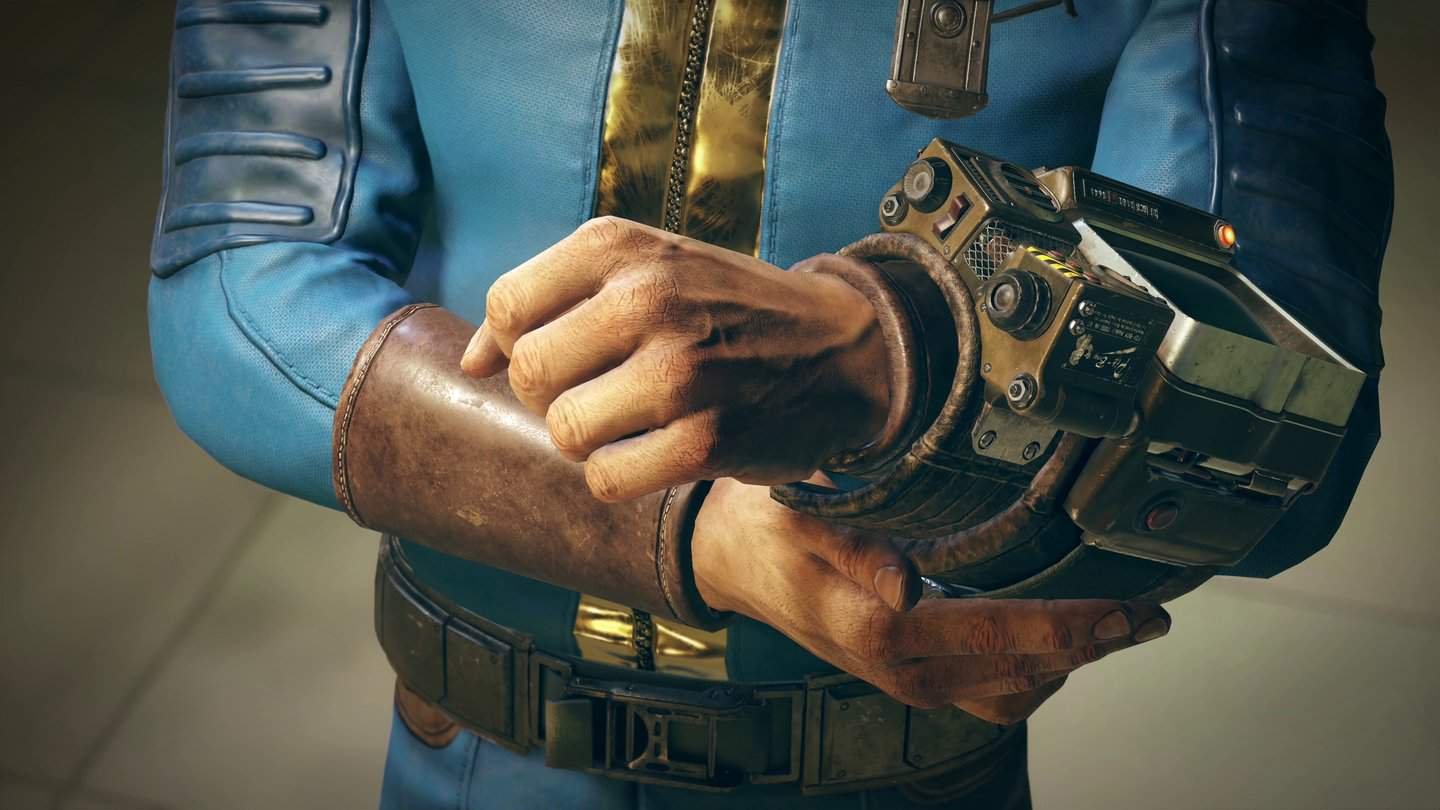Bethesda has cemented themselves as a world class publisher.
With Fallout, Rage, Doom, and Quake currently being developed and many other titles recently released, the moves they make can have rippled through the full gaming landscape. Their focus on single player and their refusal to release titles for select platforms unless the landscape is right has received countless headlines.
Therefore, while at Gamescom in Germany, CGMagazine had to get to the bottom of some of these reports and news stories with the person at Bethesda who would know best, Pete Hines. In the process, we got the chance to dive deeper into the publisher’s reasons behind the headlines and to understand where they are headed moving forward.
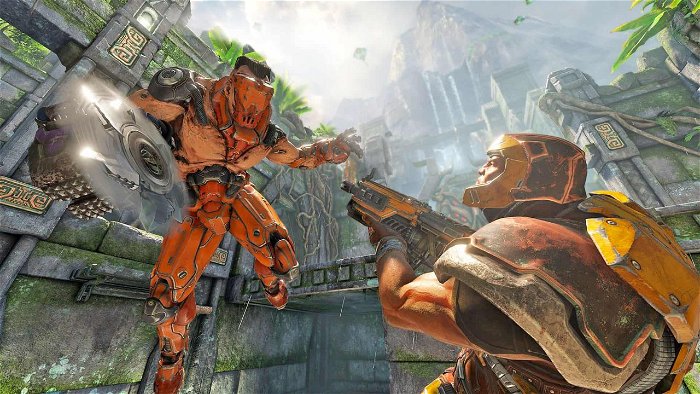
CGMagazine: Let’s start by touching base with Quake Champions. The game is now enjoying a full release and utilizes a free-to-play model. Was it always planned to be free-to-play, and why did you make this call?
Pete Hines: Well, I mean honestly, it always was going to be free, it was just that we were in early access, and if you bought the champion’s pack, you got it because we needed to continue to evolve and test. That was a good way to do it without completely turning it off. We were always headed this way; it was just that we needed to do a lot of testing, tweaking, and adding to get to this point.
CGMagazine: How has the reception been? Has the hardcore community latched on to it or are they still playing Quake 3?
Pete Hines: Some of them are always going to play Quake 3, but I think it’s been good. We’ve definitely come a long way in a couple of years since we first put Quake Champions out there and started working on it. For games like this or with Legends or whatever it is, it’s a never-ending process. You never hit a point where you can say, “Okay, we’re done, we’re good.” You’re always looking at the meta of Champions and who’s playing whom in duels, in 2v2, in larger matches, or what our onboarding process is like.
Are we doing a good enough job teaching somebody who’s brand new to the game? What are the mechanics like? Adding modes like instagib that provide more skill balancing in terms of, “Well, you don’t have to be great at head shooting somebody,” can be pretty frustrating for new players in any game, not just ours. You’re running behind somebody, you empty a clip into their back, and they’re not quite dead. “Why aren’t they dead?” Because you didn’t do enough damage. You’ve got to hit them where they are vulnerable. Instagib doesn’t care. It just says One Shot One Kill. It doesn’t matter what you hit, so it tends to be a little bit more balancing. So, we’re continuing to look at what modes, maps, and champions to add; it’s going to be a constant, ongoing process.
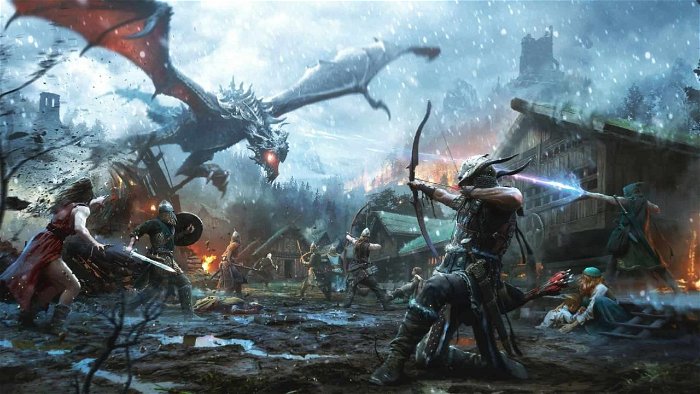
CGMagazine: In past interviews, you’ve talked about Legends needing cross play to work. Would you expand further on that concept?
Pete Hines: I’m not going to speak to any particular platform or single anybody out, even though lots of folks were quick to do so. That is not my intent. I was explaining that there are two key concepts in the way Legends works, and we feel that it needs to have. One is crossplay, which a lot of folks are focused on. But the other one that’s equally as important is the idea of cross-platform progression.
That’s the way the game was designed, and that’s the way the game works. As I said previously, the game doesn’t care where or what you’re logging on with, it just knows you’re playing the game. It knows who you are and it provides all that stuff, and we simply don’t feel that it’s a good experience to have that difference on one or more other platforms. We’re going to stick to our guns on that because we think that’s the right experience. As I said, we constantly talk to everybody. Conversations that we had back in the day with Apple and Google, we continue to have conversations with Sony, Microsoft, Nintendo and everybody else to say, “Look, this is the way it’s got to work.” When you buy something, or when you’re playing the game, you log off one thing and you log into and have your Bethesda.net account on the other. It knows who you are, it knows where you should be, and it knows what you own.
CGMagazine: Do you see any of your other properties moving in this direction moving forward?
Pete Hines: This one was specifically built from the very beginning to work this way. So, you can use another example like the Elder Scrolls Online. It’s not built like that and uses dedicated separate servers for each platform. There is actually no way to take what it is now and link it across platforms. The game was never meant to do that. It was a conversation we would have had before Elder Scrolls Online came out to say, “Okay guys, this is how we want it to work.” But in this particular case, it is already a cross-platform game across multiple devices and platform formats. It is already a cross progression game, and so we’re simply saying it has to stay this way.
Fallout 76 is not designed to work that way. You know that each platform is going to be unique and cross-platform play. Quite honestly, it was something that we talked about, but we felt like there were more important things for us to tackle and do. Whether it affects other games going forward, I honestly couldn’t tell you today. But in general, we are fans of that stuff. But as a consumer, I want to work that way. For other games that aren’t ours, I think it can be a good thing that we continue to have conversations with them about that.
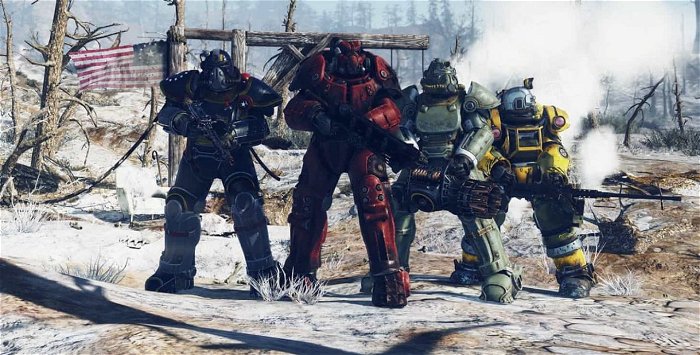
CGMagazine: Why the choice of an MMO-light type game with Fallout 76? Who was the driving force behind this direction?
Pete Hines: First, I want to be clear that it’s really not like an MMO, and I say that only because I play the game a lot. Before I went on the Quakecon, London, Gamescom circuit, I was playing the game a lot, and I can tell you that the number of people that you find in your game is really small. Like it’s dozens. You know, it’s 24, 36, or whatever the number and on a really huge map. Every now and again, you hear a gunshot and cool things like that; it might be a person or it might be a robot fighting. You don’t know what it is, but It adds a little bit of tension, and when you see a person, it’s not always clear (at least at first) what that interaction is going to be like. Ultimately, the goal for this was that it’s not a different direction for the franchise. The studios ask about multiplayer and online stuff constantly. We want to try it out, and we feel like this is the set up where we can try to see one of our open worlds. Go wherever you want, pick up anything you want, do whatever you want. How it would work with other players? I can tell you that since E3, it has evolved a bunch of different ways. Between now and next month, it’s going to continue to evolve into the beta.
At launch, it’s going to evolve in terms of what it does and how it works. That is quite honestly something that we think is cool and exciting and the studio wants and try. Todd talked about this at Quakecon—the studio hasn’t shipped or done a game like this. There are lots of people on this team. The entire Austin team is made up of nothing but people who did online games. Doug Mellencamp launched the original Ultima Online. This is what he knows and what that team down there has done. We have a lot of folks who have worked on this and are experienced. It’s going to be a journey, and there are going to be bumps, but we really like the idea of trying something that is different. And part of the reason why we laid out a roadmap for the studio is to make sure that everybody is clear that this is something that we want to try, and it is going to be different. The next thing we do is also going to be different. It’s going to be a new IP, but it’s also going to be a single player game. So, it will feel more like a Bethesda Games Studio title that you played but in a completely new universe setting, etc.
CGMagazine: If there is a great response to having that online component in Fallout 76, is this something you will look to put in future Bethesda titles?
That isn’t up to me; that’s something that Todd and his guys will decide to do. But they’ve already said that there’s no multiplayer in Starfield. There might be some social components such as social sharing and stuff, but there will be no other people in your game. It was conceived as a completely different thing. I don’t know what they have planned for Elder Scrolls VI or other games—it’s a ways off.
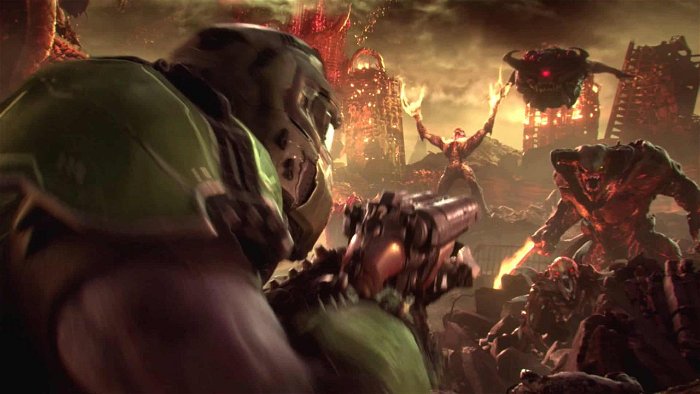
CGMagazine: id was known as a tech company, and especially so for the iD Tech engine. I have seen more Bethesda games using it recently. Is this going to be more common going forward?
Pete Hines: It’s entirely up to each studio. We never mandate and say, “Okay, you’re doing a new game studio X, and you have to use it.” Every time we say, “You need to tell us what are you going to use. What is going to make the most sense for you?” Now don’t get me wrong, we do ask them questions, but regardless of what the answer is if they say we want to use iD Tech…well, why? Help us understand what you get by using this tech. In some cases, like with Machine Games, they use the majority of what was there but maybe add some stuff that they needed. Machine Games does a lot more with cinematics character and story. In the case of other titles or other studios like Arkane, they took it and really changed it pretty dramatically for what they needed for the kind of game that they were making. But in every case, it’s always a 100 percent studio decision. The developers know best what they need to make the game, they envision it and we arbitrarily mandate them. We have this great tech studio, and you have to use their engine. It just makes absolutely no sense.
You can read the full interview in issue #35 of CGMagazine available digitally and at a store near you.
